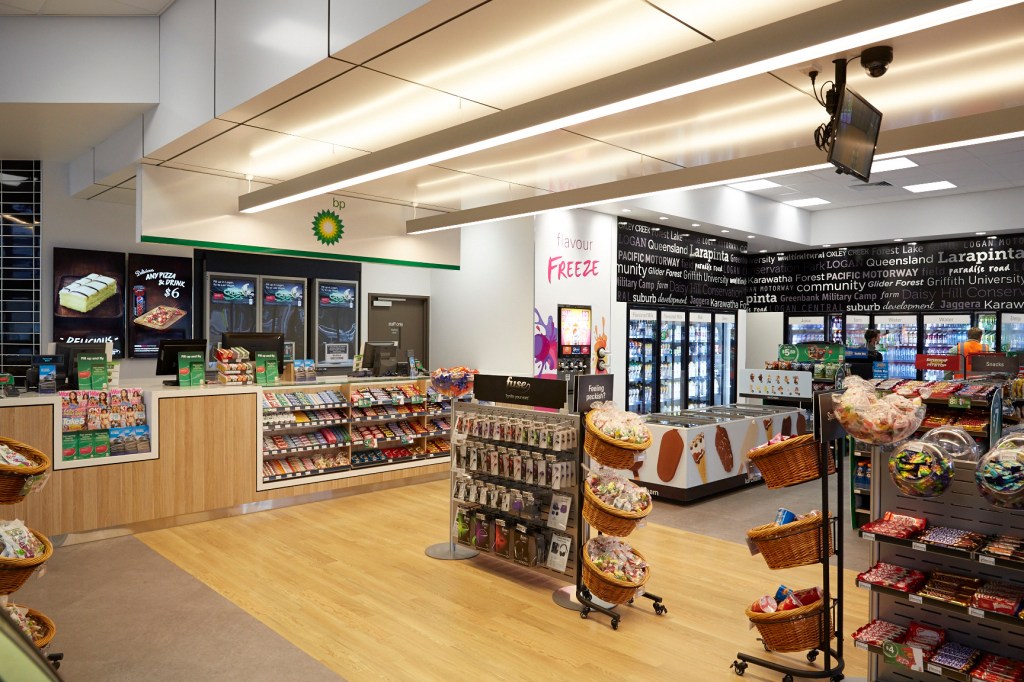The convenience sector is tipped to reap the rewards of a solid Christmas trading season following a strong sales performance in the lead up to the festive period, but challenges still lie ahead for the industry in 2016.
Jeff Rogut, CEO of the Australasian Association of Convenience Stores (AACS), told C&I Week the industry reported a sales increase of around 5 per cent in the lead up the Christmas, compared to 2014, with sales excluding tobacco just under 5 per cent. This sales momentum is expected to have continued throughout the silly season, however, officially figures are yet to be released.
“Based on the trends that we have seen, convenience sales have been positive and we don’t expect that to change,” Rogut said.
Lou Jardin, CEO of Spar, told C&I Week the independent grocery chain recorded sales in the high single digits in December, with January currently tracking similar figures. Jardin, who has been at the helm of Spar since 2010 and is a former Metcash executive, said despite the strong trade over the holiday season, operational costs on public holidays including penalty rates still remain a “big burden to retailers”.
“The current penalty rates are hard on small single stores owners. Penalty rates are something that have to be seriously looked at,” he said.
Jardin also believes the introduction of an effects test as recommended in the Harper Review last year “will be absolutely critical for small business and independent businesses”.
“It’s something that we would certainly like to see come into place because we believe that there needs to be some sort of protection for small businesses.”
Rogut said the push for more “equitable” penalty rates will be among its main focuses for the lobby group this year as well as continuing to consult with government over the sale of alcohols in convenience stores.
“It’s something that we will be pushing. It’s a huge impact on small businesses that trade 24/7. There comes a point where they just can’t afford to open. Retailers are having to consider trading less hours which is just not convenient. We don’t say that penalty rates should be abolished, there just needs to be more equitable percentage of rates,” Rogut said.
“We will also continue to talk to government about our inability to sell beer and wine in stores, and we will also be encouraging our members to look at the issue of compliance and responsibility.”
Issues facing petrol sector in 2016
Ethanol regulation, market competition, vapour recovery, and fuel theft are among the major issues petrol retailers will be faced with in 2016, according to Mark McKenzie, CEO of the Australasian Convenience and Petroleum Marketers Association (ACAPMA).
In December, the state government met to consider a move to compel all service stations in NSW to sell E10 fuel. Although major chains in the state are already required to sell E10, companies with less than 20 sites are currently exempt under legislation passed by the previous state government. The Baird government is yet to rule on the legislation and it is understood will begin consultations with industry groups from February this year.
“Ethanol will continue to be an issue both in NSW and Queensland and the costs that come with compliance, particularly for the small retailers in NSW and all fuel retailers in Queensland,” McKenzie told C&I Week.
Market competition, particularly from the supermarket majors, will also continue to be an issue in the industry, particularly in relation to the government’s foreshadowed investigation of Section 46 of the Harper Review, a provision aiming to protect small businesses from large corporations who abuse their market power.
“The issue for retailers is always going to be getting access to competitively priced fuel and being able to do that in a market that is effectively dominated by the four big oil majors,” McKenzie said.
The regulation of vapour recovery, equipment installed in service stations to reduce the evaporative emissions that occur when motorists are refuelling their vehicle, is also in the spotlight as stage two compliance nears.
“The government is getting tougher with stage one of vapour recovery. The requirement for stage two will occur this year but we still have a lot of people being chased for compliance for stage one,” McKenzie said.
An inquiry on fuel theft in Victoria is also set to be released in February, followed by further investigation into drive-offs in Western Australia.
“In Victoria we are likely to see a release of the government’s enquiry in February. We also have significant issues in Western Australia, which has the highest theft rate in terms of dollars stolen in fuel – around $11,000 a site.”

